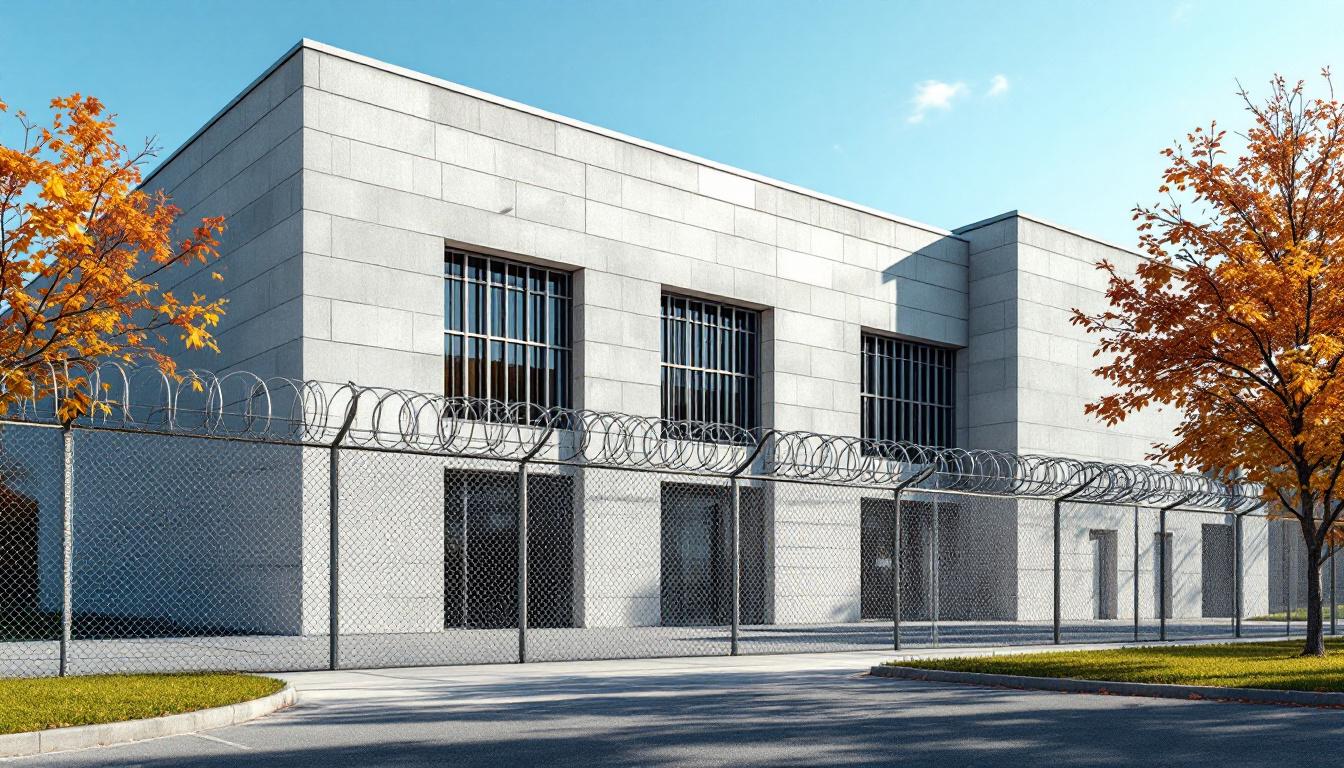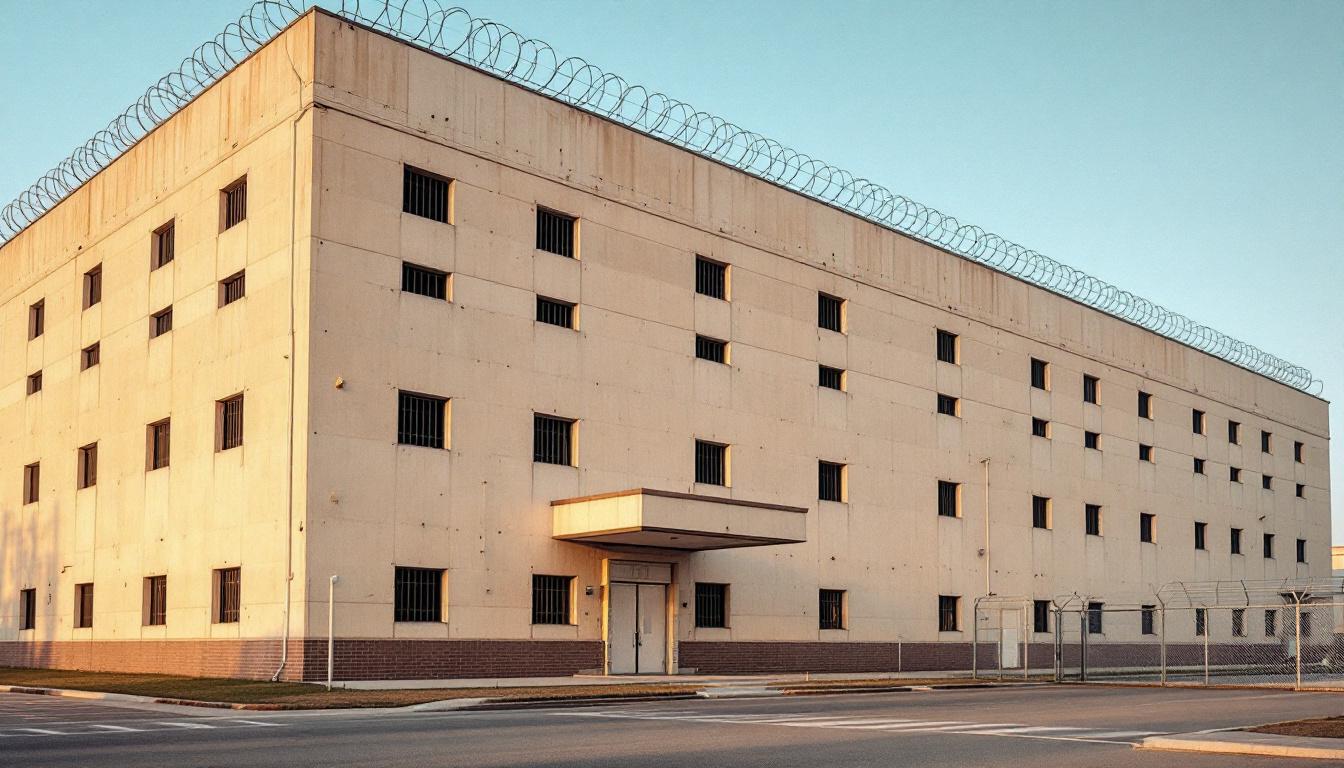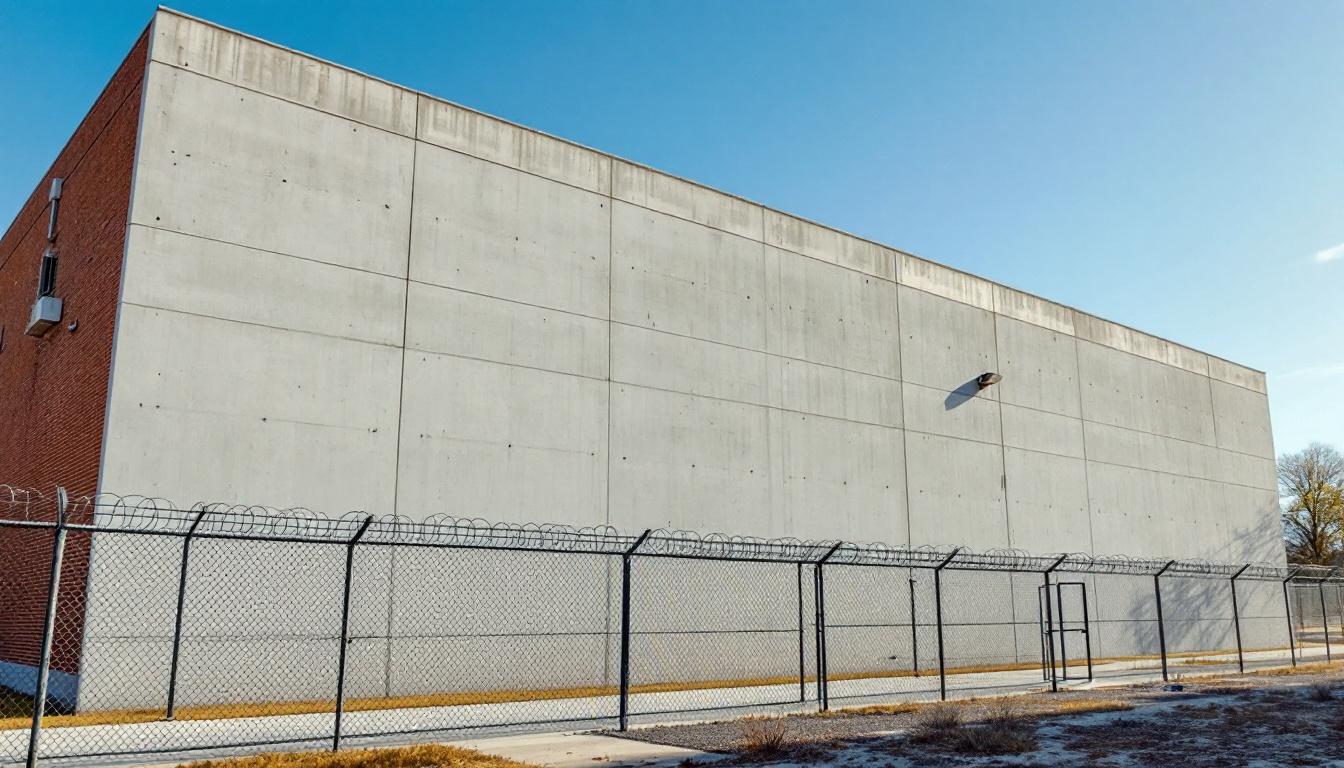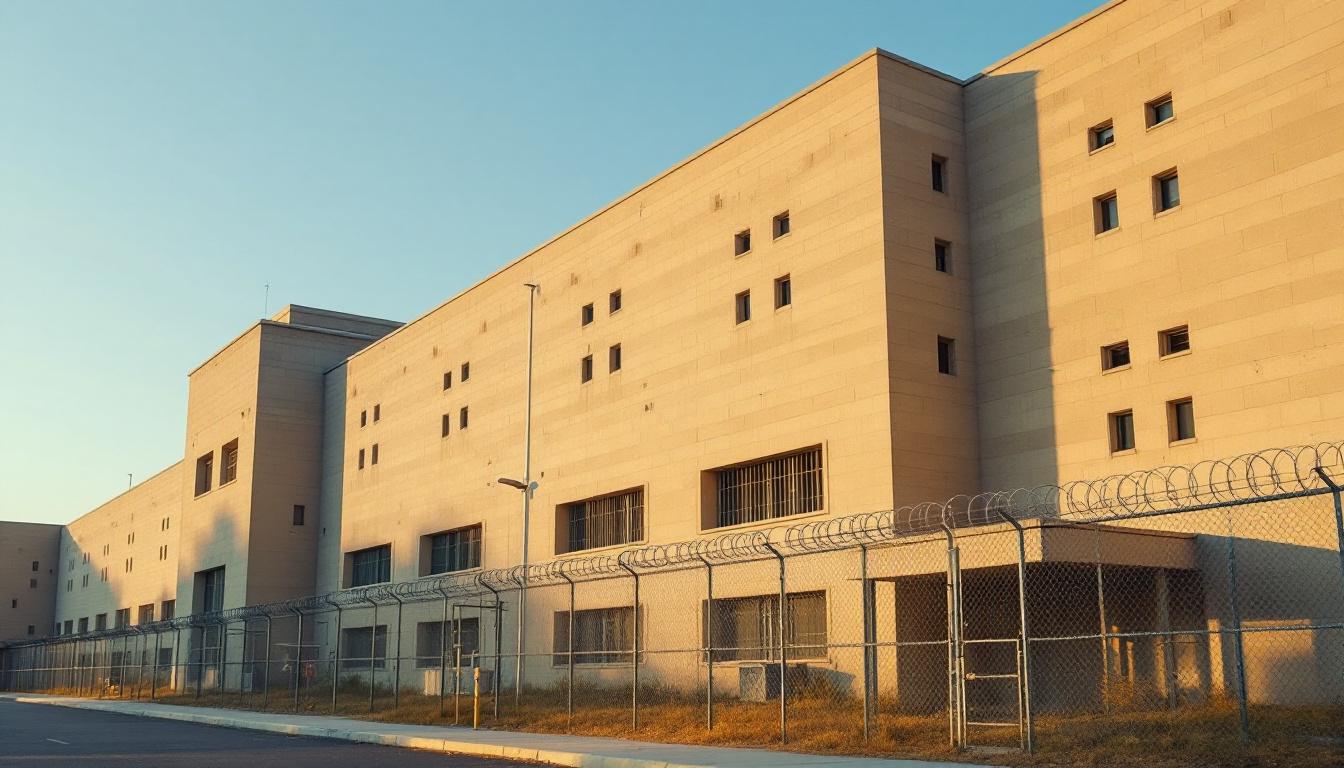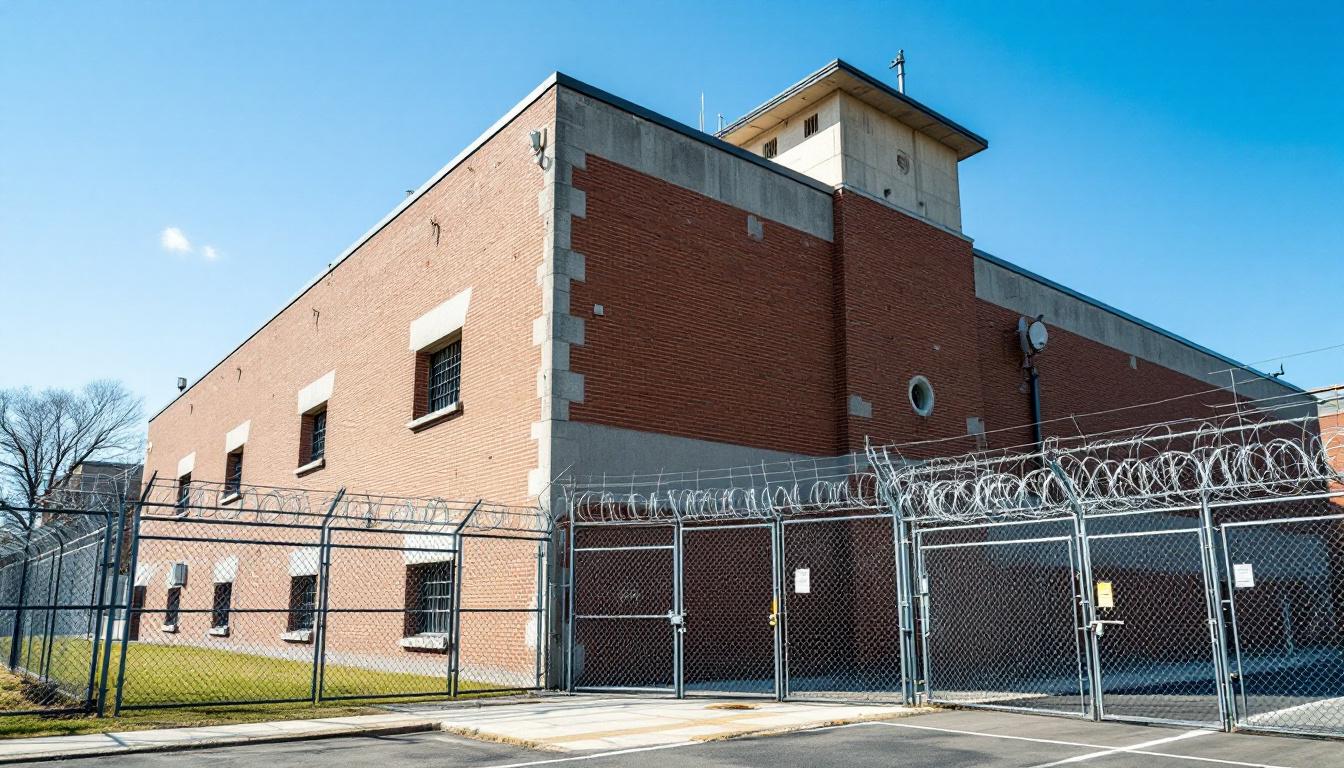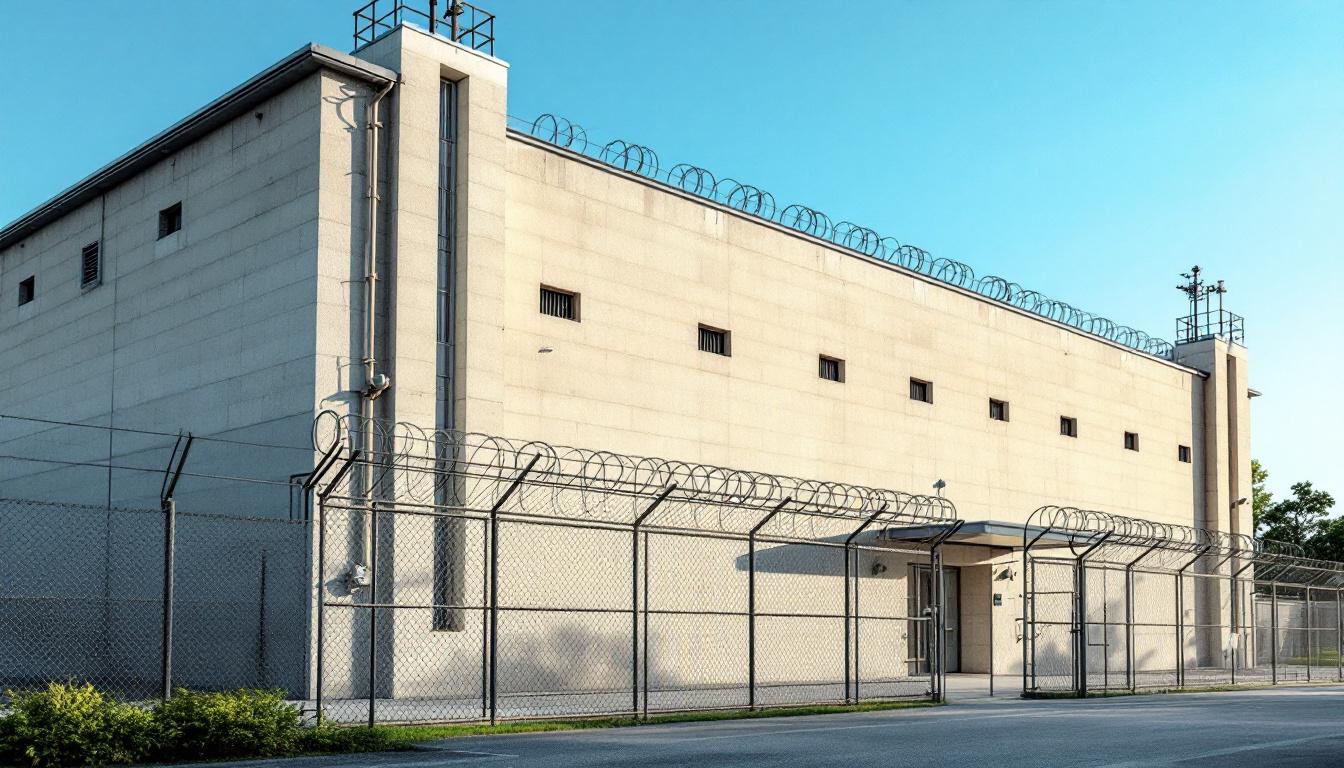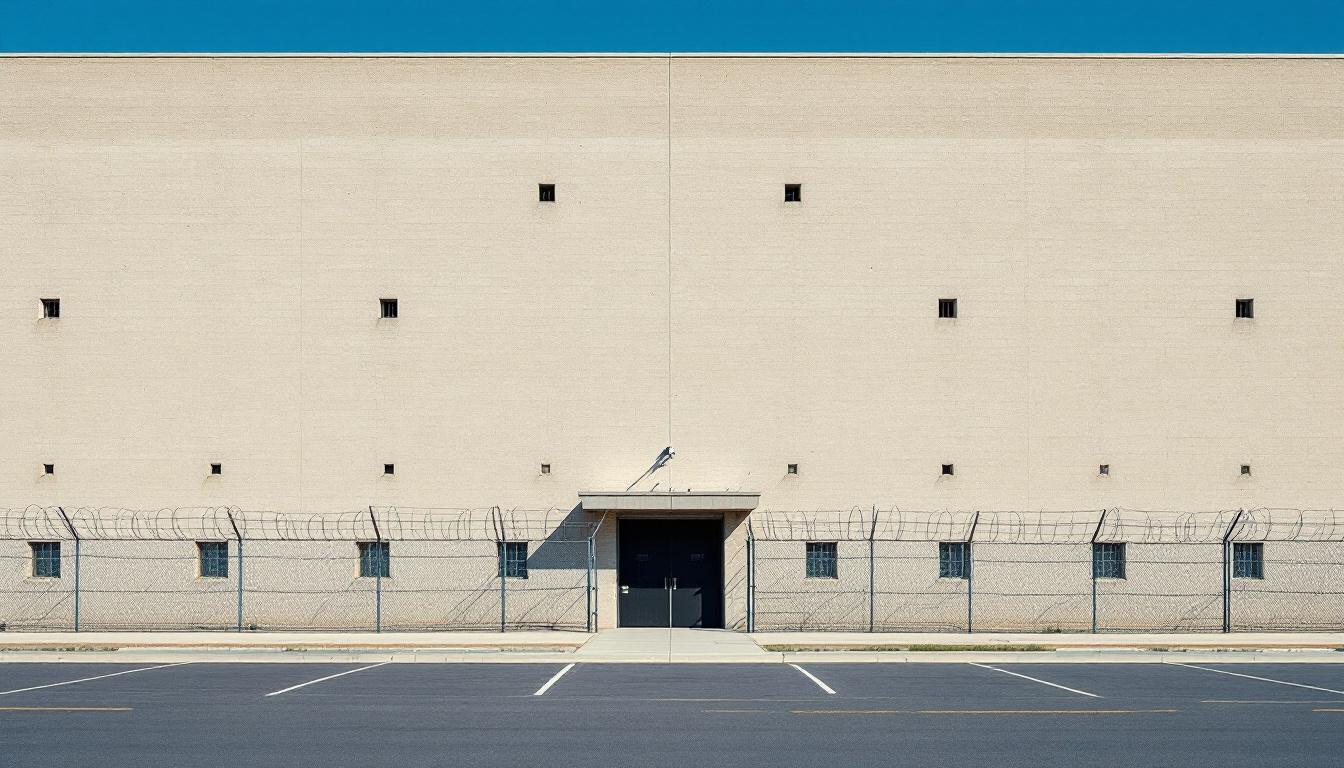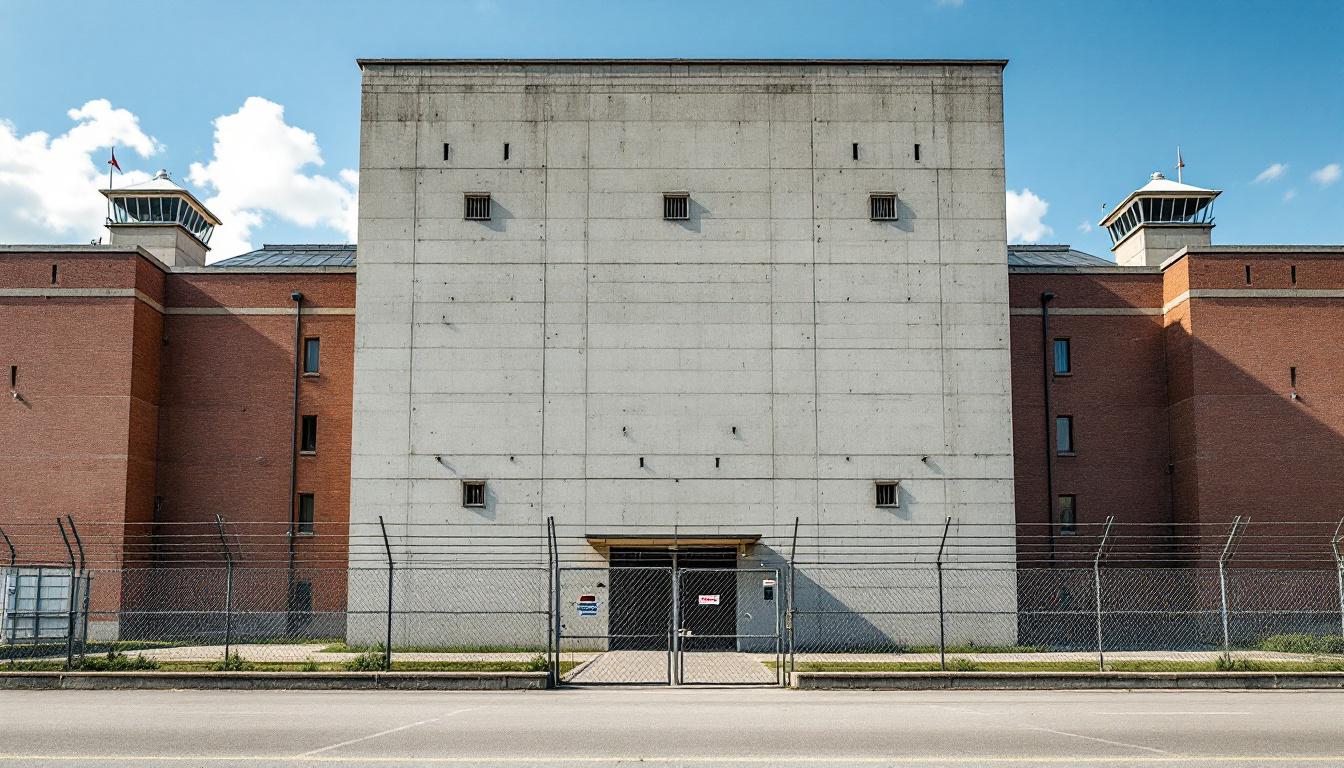
Quick Navigation
How to contact an inmate at FCI Coleman Low
This comprehensive guide will walk you through how to connect with an inmate at FCI Coleman Low. Follow the steps below to find an inmate and send letters and photos:
- Search for the inmate using our search tool below
- Create your account or log in to Penmate
- Write your message (up to 6,000 characters)
- Send instantly - inmates receive printed copies daily
Find an Inmate
Search for an inmate to start communicating today
Tip: You can search by first name, last name, or inmate ID number
To contact a person at FCI Coleman Low start by searching for the person on the official facility website. Perform a search by following these steps:
- Step 1: Enter their first name and last name into the search form and click "Search"
- Step 2: Locate their inmate record
- Step 3: Write down their Inmate ID and any housing information provided
Important! Be sure to enter the person's full name. Nicknames should not be used.
How to Send Messages to Inmates

You can use your phone or computer to send emails, letters, and photos to an inmate. Messages are sent electronically to inmate tablets or kiosks at the facility. If you would like to send a message, start by searching for an inmate at FCI Coleman Low.
Sending Photos and Postcards

A great way to send love and support to a loved one at FCI Coleman Low is to send photos and postcards. It only takes a few minutes to send photos from your phone and it makes a huge difference. You can also mail postcards with words of support and inspiration, or design your own postcard for special moments like birthdays and holidays.
Important! Be sure not to send any explicit photos or they may not be approved by the facility. You can also use a photo printing app like Penmate to make sure your photos are printed at the correct size (4x6 or 3x5) and are mailed according to the rules and regulations of FCI Coleman Low.
Frequently asked questions about FCI Coleman Low
-
How long does it take to deliver a message?
If you're sending an email message your letter is usually delivered within 24-48 hours. For messages sent via mail you should expect delivery within 3-7 days. All messages will need be approved by FCI Coleman Low.
-
How much does it cost to send a message to FCI Coleman Low?
You can send a message free using your phone or mail a message via USPS for the price of a $0.60 stamp and envelope. You can also purchase credits or e-stamps from services starting at $1.99.
-
What services can I use to contact an inmate at FCI Coleman Low?
Penmate
You can use Penmate to send letters and photos to an inmate from your phone. It's an easy way to stay in touch during your loved one's incarceration. Use the inmate locator to find an inmate's location and contact information, then you can send messages within a few minutes.
Securus messaging
Securus may be another option for communicating with an inmate at FCI Coleman Low. You can create a friends and family account and purchase credits to send messages. All messages will be reviewed and must be approved by the facility.
JPay
Some county jails and state prisons may support sending messages with JPay. You must register an account with the system, find your loved one, and purchase stamps to send messages. For some locations you can also attach photos.
Smart Jail Mail
You may also check if Smart Jail Mail is available at FCI Coleman Low. Smart Jail Mail is operated by Smart Communications and has contracted with some state and county jails. After purchasing credits, your messages and photos are sent to the facility, printed out, and then handed out to your loved one.
-
What is the mailing address of FCI Coleman Low?
Mailing address:
FCI Coleman Low
845 Coleman Dr
Wildwood, FL 34785
Phone: (352) 689-4000 -
What are the visiting hours at FCI Coleman Low?
Visiting hours at FCI Coleman Low vary by housing unit and security level. Generally, visits are scheduled on weekends and holidays, with some facilities offering weekday visits. Contact the facility directly at (352) 689-4000 or check their website for the current visiting schedule. Visits typically last 30-60 minutes and must be scheduled in advance.
-
What items are prohibited when sending mail to FCI Coleman Low?
Prohibited items typically include: cash, personal checks, stamps, stickers, glitter, glue, tape, staples, paperclips, polaroid photos, musical or blank greeting cards, hardcover books, magazines with staples, and any items containing metal or electronics. Only send letters on plain white paper with blue or black ink. Photos must be printed on regular photo paper (no Polaroids). Always check with FCI Coleman Low for their specific mail policies.
-
How do I send money to an inmate at FCI Coleman Low?
You can send money to an inmate at FCI Coleman Low through several methods: 1) Online using JPay, Access Corrections, or the facility's approved vendor, 2) Money orders mailed directly to the facility with the inmate's name and ID number, 3) Kiosks located in the facility lobby, or 4) Over the phone using a credit or debit card. Fees vary by method, typically ranging from $2.95 to $11.95 per transaction.
-
Can I schedule a video visit with an inmate at FCI Coleman Low?
Many facilities now offer video visitation as an alternative to in-person visits. At FCI Coleman Low, video visits may be available through services like Penmate, Securus Video Connect, GTL, or ICSolutions. Video visits typically cost $10-20 for 20-30 minutes and must be scheduled in advance. You'll need a computer or smartphone with a camera and reliable internet connection. Contact the facility for their specific video visitation policies and approved vendors.
-
What identification do I need to visit an inmate at FCI Coleman Low?
All visitors must present valid government-issued photo identification such as a driver's license, state ID, passport, or military ID. Minors must be accompanied by a parent or legal guardian who can provide the minor's birth certificate. Some facilities require visitors to be on the inmate's approved visitation list, which may require a background check. Contact FCI Coleman Low for specific ID requirements and visitor approval procedures.
-
How can I find out an inmate's release date?
To find an inmate's release date at FCI Coleman Low, you can: 1) Use the online inmate search tool if available, 2) Call the facility's records department, 3) Contact the inmate's case manager or counselor, or 4) Have the inmate provide this information during a call or visit. For privacy reasons, some facilities only release this information to immediate family members.
Facility Overview
Official Website
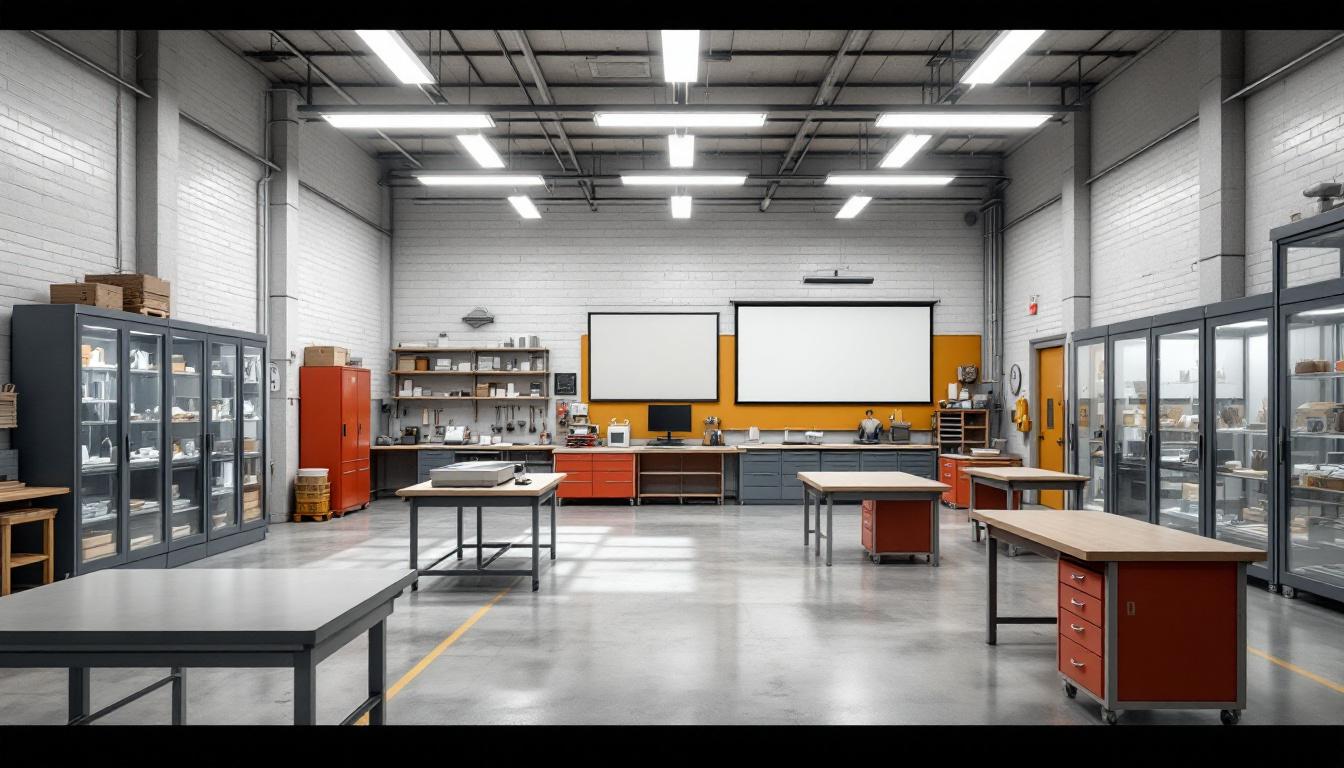
About FCI Coleman Low
Evidence-based rehabilitation programs and comprehensive reentry services form the cornerstone of operations at FCI Coleman Low, FL, where individuals work toward successful community reintegration through structured learning opportunities and skill development initiatives. This FL correctional facility operates within the federal system to provide individuals services that typically include educational programming, vocational training, and behavioral intervention programs designed to address underlying factors that may contribute to criminal behavior. Located in Coleman, Florida, the facility serves as part of a broader correctional complex that emphasizes measurable outcomes in reducing recidivism while maintaining community safety through effective supervision and programming.
The facility's approach centers on preparing individuals for productive citizenship through programs that may include literacy education, job readiness training, and substance abuse treatment services. Within Florida's correctional landscape, FCI Coleman Low generally focuses on evidence-based practices that research has shown to be effective in supporting behavioral change and successful reentry. The Coleman community benefits from the facility's emphasis on rehabilitation over purely punitive measures, as individuals typically participate in programs designed to develop the skills and mindset necessary for law-abiding community participation upon release. Through structured daily routines, educational opportunities, and therapeutic interventions, this correctional facility works to break cycles of criminal behavior while contributing to long-term public safety outcomes in the broader region.
Programs & Services
A comprehensive approach to individual development forms the foundation of opportunities at FCI Coleman Low, where multiple pathways converge to support personal growth and successful community reintegration. The facility typically emphasizes a holistic model that recognizes each person's diverse needs and potential for positive change. This philosophy drives the delivery of various opportunities designed to address educational gaps, develop practical skills, and foster personal wellness.
Educational advancement serves as a cornerstone of available opportunities, with programs that may offer literacy improvement, GED preparation, and post-secondary coursework to help individuals build academic foundations. Moreover, vocational training opportunities often include specialized instruction in small engine repair, providing hands-on experience with equipment maintenance and mechanical systems. These skill-building initiatives typically focus on developing marketable competencies that align with employment demands in the surrounding Florida communities.
Support services and therapeutic interventions round out the comprehensive programming structure at the facility. Substance abuse treatment opportunities may offer evidence-based approaches to address addiction-related challenges through both group and individual sessions. Additionally, work release programs often provide supervised community employment experiences, while physical fitness opportunities typically include structured exercise programs and recreational activities that promote both physical health and stress management. These varied approaches work together to support individuals in developing the tools and habits necessary for sustained personal success.
Daily Life & Visitation
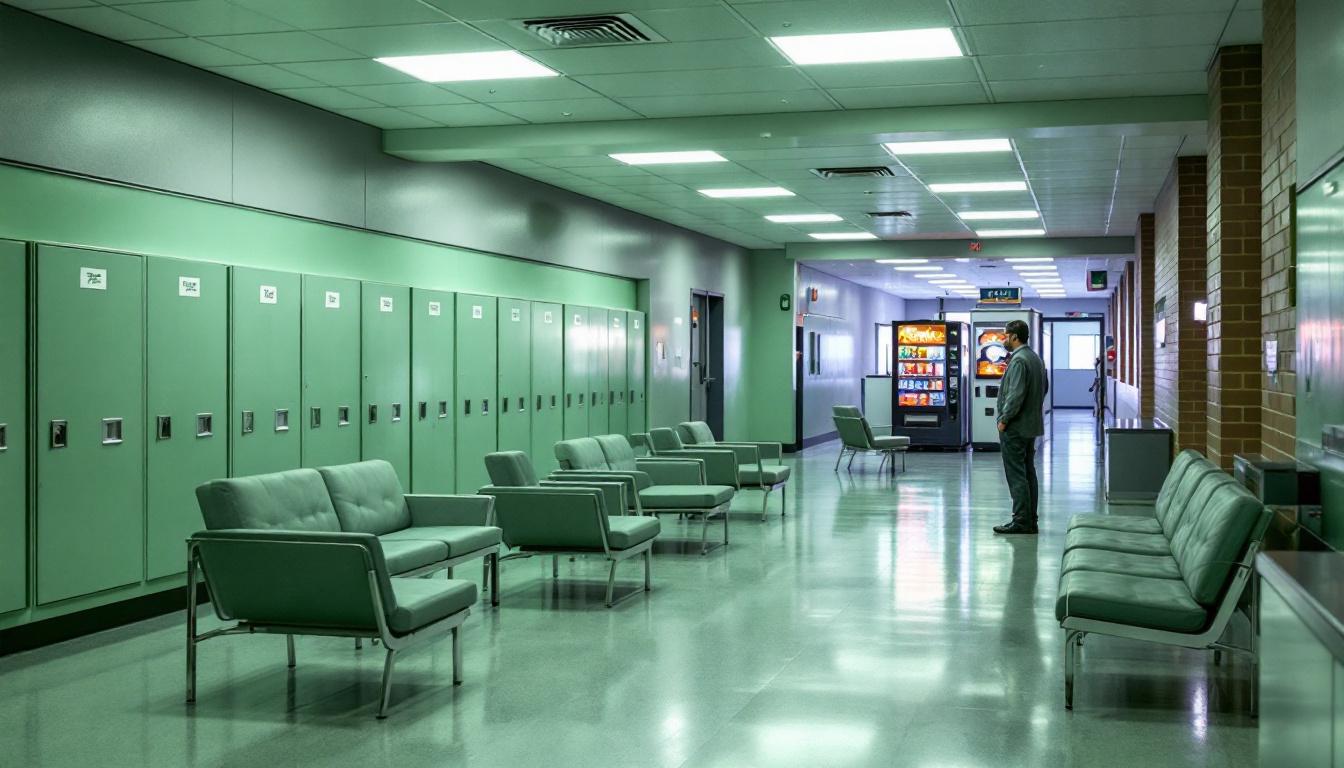
The sound of movement begins before dawn, as individuals now prepare for another structured day within the federal correctional system. Morning routines typically start early, with individuals regularly following established schedules that include personal hygiene, cell inspections, and preparation for work assignments or educational programming. The facility operates on a regimented timeline that governs meals, count times, and various activities throughout the day.
Living accommodations generally consist of shared housing units where individuals are assigned roommates and maintain personal living spaces within established guidelines. Moreover, the dormitory-style housing typically allows for some personal belongings and commissary items, though space remains limited and subject to security protocols. Meals are served in communal dining areas at designated times, offering basic nutritional requirements while individuals often supplement their diet through commissary purchases when funds are available.
Programming opportunities may offer structure through various work assignments, educational classes, and recreational activities that help individuals maintain physical fitness and develop skills. Whereas weekdays focus heavily on work details and structured programming, weekends typically provide more time for recreational activities, library access, and personal pursuits. Family connections remain vital through scheduled visitation periods and telephone privileges, allowing individuals to maintain important relationships with loved ones while serving their sentences in this federal facility environment.
Ready to Connect?
Start communicating with your loved one today
Search for an Inmate
